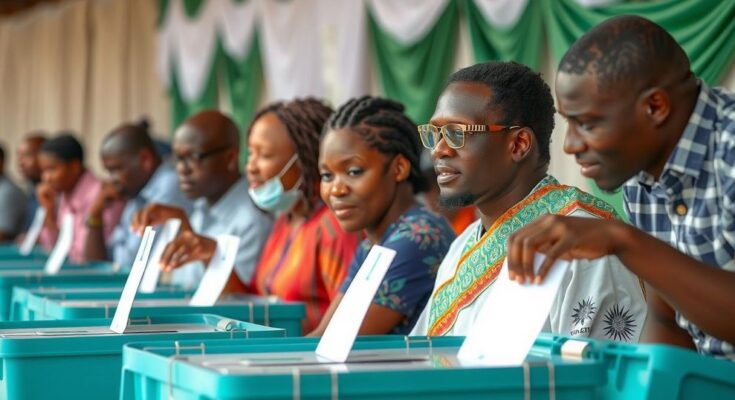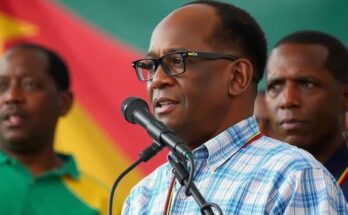Polls opened in Ghana’s general election on December 7, 2024, amidst a severe economic crisis. With 18.7 million registered voters, the election is seen as a critical test for democracy in a region facing instability. The major candidates have been criticized for their inability to present transformative solutions, raising concerns about the future of the nation.
On December 7, 2024, polls were officially opened in Ghana for a general election, which is anticipated to serve as a critical test for the nation’s democratic fabric within a region that has increasingly experienced extremist violence and political upheaval. Approximately 18.7 million citizens are eligible to participate in both presidential and legislative elections. However, many observers express skepticism regarding the potential for significant change as the two leading candidates have offered limited new visions for the country’s future.
Ghana, once regarded as a beacon of democracy in West Africa, is currently grappling with a serious economic crisis characterized by escalating inflation rates and widespread unemployment. The electoral atmosphere is fraught with uncertainty, revealing the tension between the electorate’s hope for tangible improvement and the stark realities of the current socio-economic landscape. The general election is viewed not only as a mechanism for choosing leaders but also as an indicator of the resilience of democratic values in challenging times.
Ghana has historically been celebrated as a stable democracy in West Africa, particularly noted for its peaceful transitions of power since the early 1990s. However, the recent economic downturn—accompanied by substantial inflation and high unemployment—has led to widespread disillusionment among the population. This elections hold additional significance given the backdrop of political instability in the region, where coups and violence have threatened democratic institutions. As such, the implications of this general election extend beyond national borders, reflecting the broader challenges facing democracy in West Africa.
In conclusion, the general election in Ghana, opening against a backdrop of economic turmoil, serves as a crucial barometer for the country’s democratic state. With a significant portion of the population dissatisfied with the current economic conditions and the leadership options available, the election outcome may determine not only the future trajectory of Ghana but also contribute insights into the overall health of democracy in a tumultuous region.
Original Source: abcnews.go.com




